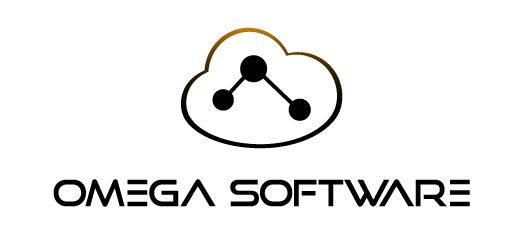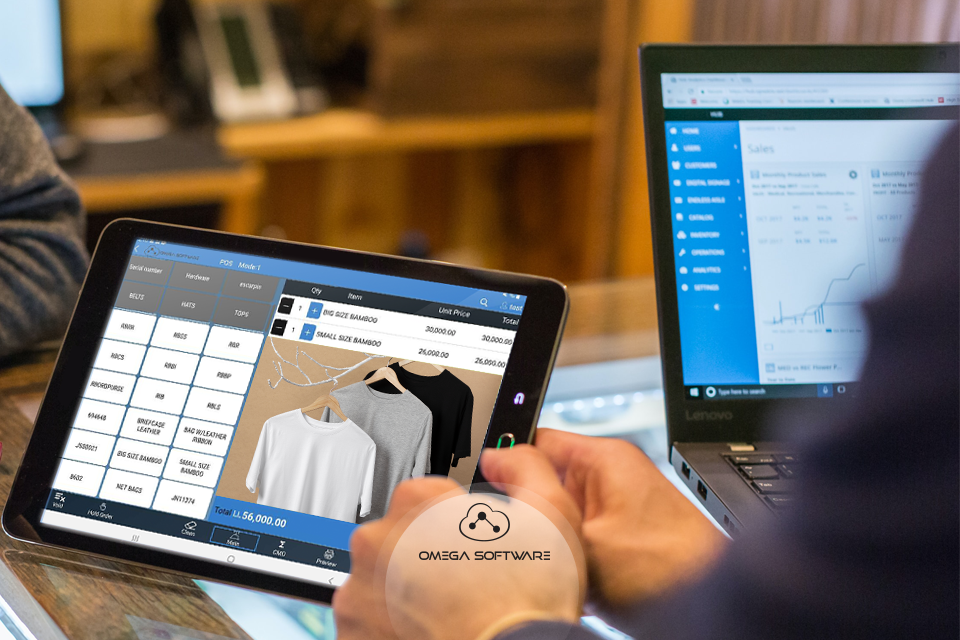In today’s world of heightened competition and corporate expansion, customers’ expectations have risen significantly over the past few years. For this reason, the retail industry has recently seen a rise in activity and competition due to digital disruption.
The ability to accept payments from clients and track sales is essential for any retail business, and the POS software installed in a contemporary retail establishment offers numerous advantages and keeps track of daily transactions.
It’s also compatible with a wide range of business operations, making it well-suited to the ever-changing requirements of the retail industry.
Thus, if you don’t currently have a POS system in place for your retail business and are still unaware of the productivity gains that can be realized by implementing one, then here is the guide that will describe what makes the POS system an indispensable component of your business.
Positive Effects of POS Software on Retail Sales & Productivity
One of the most successful strategies for retail businesses to enhance sales is implementing a POS system or improving their existing one. Listed below are the justifications for why.
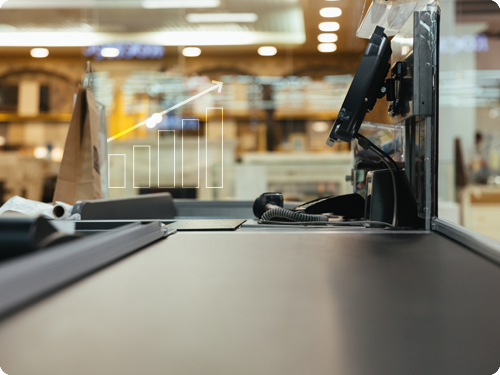
1. Provide Effortless Service to Your Customers
Modern consumers expect firms to offer a seamless, consistent buying experience across all platforms. Therefore, businesses in the retail sector can boost their bottom lines by investing in POS systems that blend digital and physical encounters, making it possible for consumers to shop whenever and however they like and also helps business owners learn more about their customers’ wants and needs, which in turn can boost sales.
2. Improve performance Through Data Examination
A POS system gathers your organization’s data to make real-time choices. KPIs like total profit and profit margin are given out in POS system reports, allowing merchants to monitor their profitability and make sure their stock is contributing to sales.
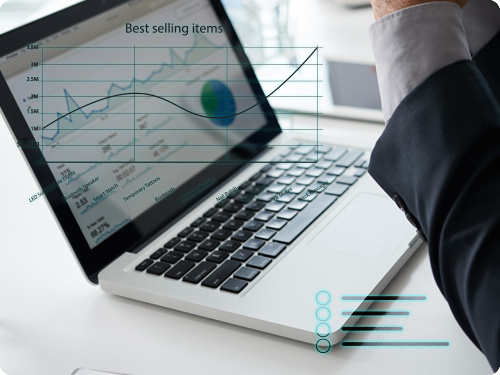
3. Strengthens Inventory Management Efficiency
A POS system’s inventory control feature can automatically trigger re-orders of products or ingredients when the stock reaches a certain threshold. In this way, you can ensure that you never run out of any essential things in your business and can relax knowing that everything will always be available on the shelves when customers need it. As a bonus, overstocking and unnecessary waste is also reduced.
4. Eliminates Mistakes in Orders and Financial Transactions
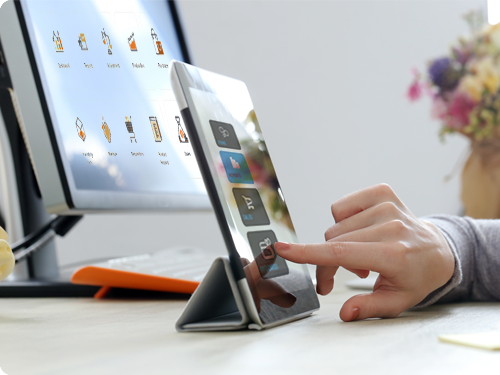 POS systems allow orders to be taken via handheld devices and transferred wirelessly to a business display system, eliminating the possibility of human error. It has buttons or icons on a touchscreen display that are pre-mapped to specific items on the menu. Each key has a distinct label indicating which product it “unlocks.” Hence, the possibility of a mistaken input at the counter while taking a customer’s order is reduced.
POS systems allow orders to be taken via handheld devices and transferred wirelessly to a business display system, eliminating the possibility of human error. It has buttons or icons on a touchscreen display that are pre-mapped to specific items on the menu. Each key has a distinct label indicating which product it “unlocks.” Hence, the possibility of a mistaken input at the counter while taking a customer’s order is reduced.5. Permits Businesses to Provide Prompt Service
POS systems facilitate quick in-store and at-the-counter assistance for clients. For instance, tablet-based POS systems allow restaurants to send customers’ orders directly to the kitchen, where they can be prepared and served to customers more quickly. Similarly, retail POS systems with barcode scanning, touchscreen input, and built-in payment processing cut down transaction time and errors.
Therefore, using a POS system as a jumping-off point is wise.
6. Customer Loyalty Initiatives
Loyal consumers guarantee a constant flow of revenue. Developing a loyalty program to reward repeat customers is a great way to increase revenue.
Incorporating customer loyalty programs into a POS software development enables you to monitor each member’s buying habits, tastes, and preferences. By using this information to create more refined customer profiles, your sales team will be able to send out highly targeted and relevant emails, hence increasing revenue.
7. Figure out Reordering Factors
The appropriate POS systems may even recommend when and how much stock should be replenished. It also monitors your sales patterns and modifies your inventory buys accordingly, whether you’re experiencing a peak season or a downturn. Thus, a point-of-sale system is the best option for any store that wants to boost output and efficiency.
How to Determine the Ideal POS Software for Retail?
Now that you know how POS software can help your business, you can look into POS systems. However, if you’re having trouble figuring out which system will be the ideal fit for your company, here’s what you need to know. Statistics show that 47% of new retail enterprises survive their first four years. This survey shows that many retailers use obsolete business strategies, which is why many new business owners don’t know how to grow a lucrative retail firm. But, in 2020, the POS software industry was worth $9.3 billion.
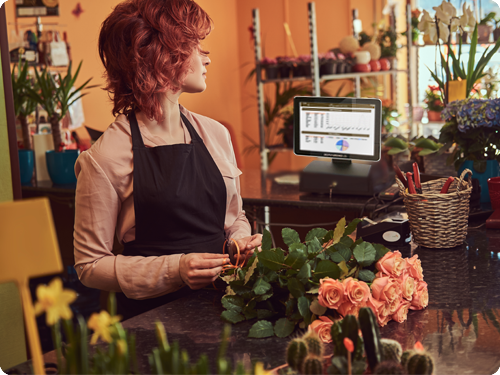
The optimal POS system for any given retail establishment will depend on the specific requirements of that establishment, and there are countless ways in which a high-quality Omega POS system’s adaptable set of tools may improve your business operations.
Omega POS is the best option for brick-and-mortar stores selling online and in person by consolidating all the features and reports a business needs into a single dashboard. It makes it easy to keep track of both online and offline stock levels by providing a multitude of consolidated information.
Further automation of repetitive tasks and increased productivity can be achieved with just a sprinkling of software and technology. Thus, Omega POS makes it possible to automate formerly manual processes like billing, figuring out the total bill, providing discounts, etc.
Consequently, Omega POS is the most incredible option for shops looking to invest in business management software.
Wrapping Up
If you’re looking for a way to streamline your operations and simplify your life, an Omega POS system is where it’s at. By working with Omega Software, retailers may save time on labor cost control, scheduling, and teamwork, and it provides real-time data for better staff management, stock tracking, and decision-making.
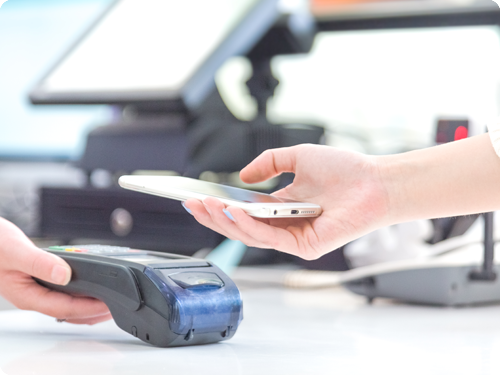
In addition to speeding up transactions, Omega POS acts as a business partner by establishing optimal pricing for each item. It’s a boon to retail establishments.
Thus, Omega POS integration is necessary to boost retail sales and shop productivity!
